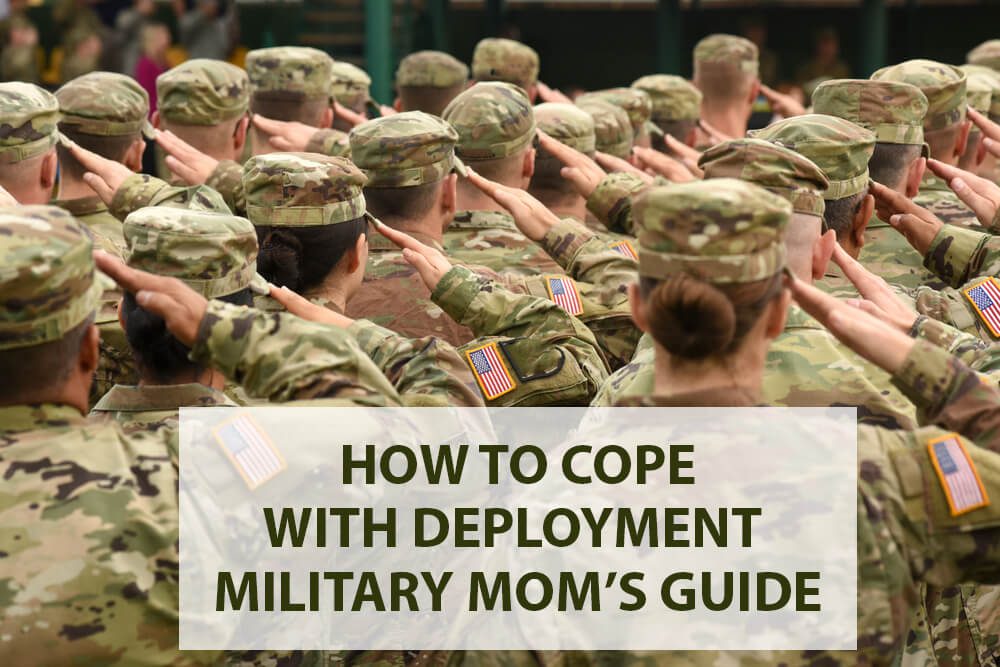This content is a guide titled “Coping with Deployment: A Guide to Emotional Support for Military Families.” It provides strategies for military families to cope with the emotional challenges of deployment. The guide highlights the importance of communication, establishing a support network, practicing self-care, seeking professional help, maintaining routines, keeping busy, and celebrating milestones. By implementing these strategies, military families can navigate deployment more effectively and emerge stronger and connected as a unit.
Coping with Deployment: A Guide to Emotional Support for Military Families
Introduction
Deployment is a challenging time for military families, as they experience prolonged separation from their loved ones serving in the armed forces. Along with the physical distance, emotional stress, anxiety, and loneliness can take a toll on both the service member and the family left behind. However, with proper emotional support strategies in place, military families can endure these hardships more effectively and develop resilience in the face of deployment.
1. Communication
Staying connected with your deployed loved one is crucial during their absence. Regular and consistent communication can alleviate feelings of isolation and foster a sense of togetherness. Utilize various communication tools available, such as email, phone calls, video chats, and even traditional mail. Sharing daily experiences, discussing any difficulties, and expressing love and support can help maintain a strong emotional bond despite the physical separation.
2. Establish a Support Network
Building a support network, both within the military community and outside, is essential for emotional well-being. Connect with other military families who are going through similar experiences. Join support groups, attend family events organized by the military base, or participate in online forums specifically designed for military families. Sharing your feelings, concerns, and experiences with others who can relate can provide valuable emotional support and a sense of belonging.
3. Self-Care
During deployment, it’s important for family members to engage in self-care activities to relieve stress and maintain a healthy emotional state. Practice regular exercise, get sufficient sleep, and eat a balanced diet. Explore hobbies or take up new interests that bring joy and distraction. Engaging in self-care not only helps in coping with the emotional challenges but also sets an example for children, reassuring them that life goes on even when a loved one is away.
4. Seek Professional Help
If the challenges of deployment become overwhelming, seek professional help. Contact the Military Family Life Counselor or Military OneSource for counseling services specifically designed for military families. Professional counselors can offer guidance, coping strategies, and a safe space to express feelings. Additionally, they can help navigate through deployment-related stressors and provide valuable resources for emotional support.
5. Maintain Routine and Structure
Creating and maintaining a routine can provide a sense of stability during deployment. Stick to regular meal times, bedtime routines, and household schedules. This structure helps family members feel secure and minimizes the disruption caused by the absence of a loved one. Children, in particular, benefit from a stable routine, as it provides them with familiarity and reassurance during this uncertain time.
6. Keep Busy
Keeping oneself occupied with meaningful activities can help distract from the emotional challenges of deployment. Set personal goals and work towards achieving them. Focus on personal and professional development, pursue educational opportunities, or volunteer for community organizations. Staying busy not only helps pass the time but also promotes a sense of accomplishment and fulfillment.
7. Celebrate Milestones
While deployment can be challenging, it’s important to focus on the positive moments and celebrate milestones together as a family. Recognize important dates such as birthdays, anniversaries, holidays, and achievements. Plan virtual celebrations or send care packages to maintain a sense of connection and to remind your loved one that they are cherished and missed.
Conclusion
Deployment is undoubtedly a difficult time for military families, but with the right emotional support strategies in place, it is possible to cope with the challenges effectively. By prioritizing communication, establishing a support network, engaging in self-care, seeking professional help when needed, maintaining routines, staying busy, and celebrating milestones, military families can navigate through deployment and emerge stronger, more resilient, and connected as a unit.
